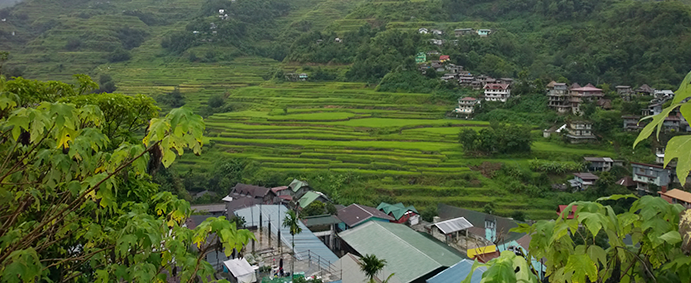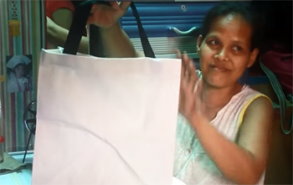ABM Archive Website
THIS WEBSITE CONTAINS ARCHIVE MATERIALS FOR HISTORICAL REFERENCE ONLY
For up-to-date information, including our latest appeals, news, and resources, please visit our current website.
Philippines
 |
| Mountain Province in the Diocese of Northern Philippines. © Julianne Stewart/ABM, 2014. |
The Republic of the Philippines is a tropical archipelago of more than 7,100 islands, the largest being Luzon and Mindanao.
These two islands host around 70% the country’s population, which in 2016 was estimated to be 100.7 million.
According to the United Nations Human Development report 2016, around 13 million people are living in extreme poverty, the majority of whom are in rural areas. Agriculture is the primary and often only source of income in these areas, and most families depend on subsistence farming and fishing for their livelihoods. Illiteracy, unemployment and the incidence of poverty are higher among indigenous peoples, women, landless workers, and small-scale farmers who cultivate land received through agrarian reform.
The causes of poverty in rural areas are attributed to a decline in the productivity and profitability of small-scale farming, as well as unsustainable practices that have led to deforestation and depleted fishing waters. The plight of poor people in rural areas have been exacerbated by little access to productive assets and business opportunities, formal employment, and microfinance services and affordable credit.
ABM has partnered with the Episcopal Church in the Philippines (ECP) since the early 1990s, assisting the church in its mission to facilitate local, community-driven development in the country’s poorest areas. The ECP is made up of seven dioceses, and although church membership is small in number compared with other mainstream Christian churches, it is a stable and well-governed institution. Rapid growth within the ECP development programs lead to a re-structure in 2014, and the E-CARE Foundation was established as a separate but related organisation. The mission of E-CARE is to support self-reliant and sharing communities through asset-based community development (ABCD) methodology and the ‘Receivers to Givers’ policy.
ABM also partners with the Philippine Independent Church (Iglesia Filipina Independiente – IFI) and works through its social development arm, the IFI Visayas-Mindanao Regional Office for Development (IFI-VIMROD). IFI the second largest Christian denomination in the Philippines after the Roman Catholic Church, with an estimated membership of 10 million.
Your support of this productive work will help release many from crippling cycles of poverty, and ensure sustainable livelihoods for families well into the future.
2021 project in the philippines
- Asset Based Community Development (E-CARE) (tax-deductible)
- Asset Based Community Development (VIMROD) (tax-deductible)
 |
This is part of the Community Development Program: Learn more about ABM’s Programs |
Emergency Response
-
Philippines Emergency Appeal: Typhoon Ulysses
Other emergency news may be found here.
CELEBRATING 25 YEARS OF PARTNERING WITH THE EPISCOPAL CHURCH
OF THE PHILIPPINES IN COMMUNITY DEVELOPMENT WORK
September 2019 – ABM recently had the pleasure of a visit from a delegation of three people – representing the Prime Bishop of the Philippines, the Most Rev Joel Pachao – who travelled to Australia to mark the 25th anniversary of ABM’s cooperation with the Episcopal Church of the Philippines (ECP). Read more
The Story of the ABM Bags
 ABM supports the work of the Kasalika Association based in Caloocan City, a slum area in metropolitan Manila. Learn about how the Episcopal Church in the Philippines has helped this community to thrive and about the people who produce the ABM bags.
ABM supports the work of the Kasalika Association based in Caloocan City, a slum area in metropolitan Manila. Learn about how the Episcopal Church in the Philippines has helped this community to thrive and about the people who produce the ABM bags.
View a video by the E-CARE Foundation which features Luke Bagano, E-CARE’s Monitoring Officer, visiting Miramonte in Caloocan City as he gives an update on the Kasalika Association.
References for main text:
http://hdr.undp.org/en/countries/profiles/PHL
http://www.ruralpovertyportal.org/web/rural-poverty-portal/country/home/tags/philippines


